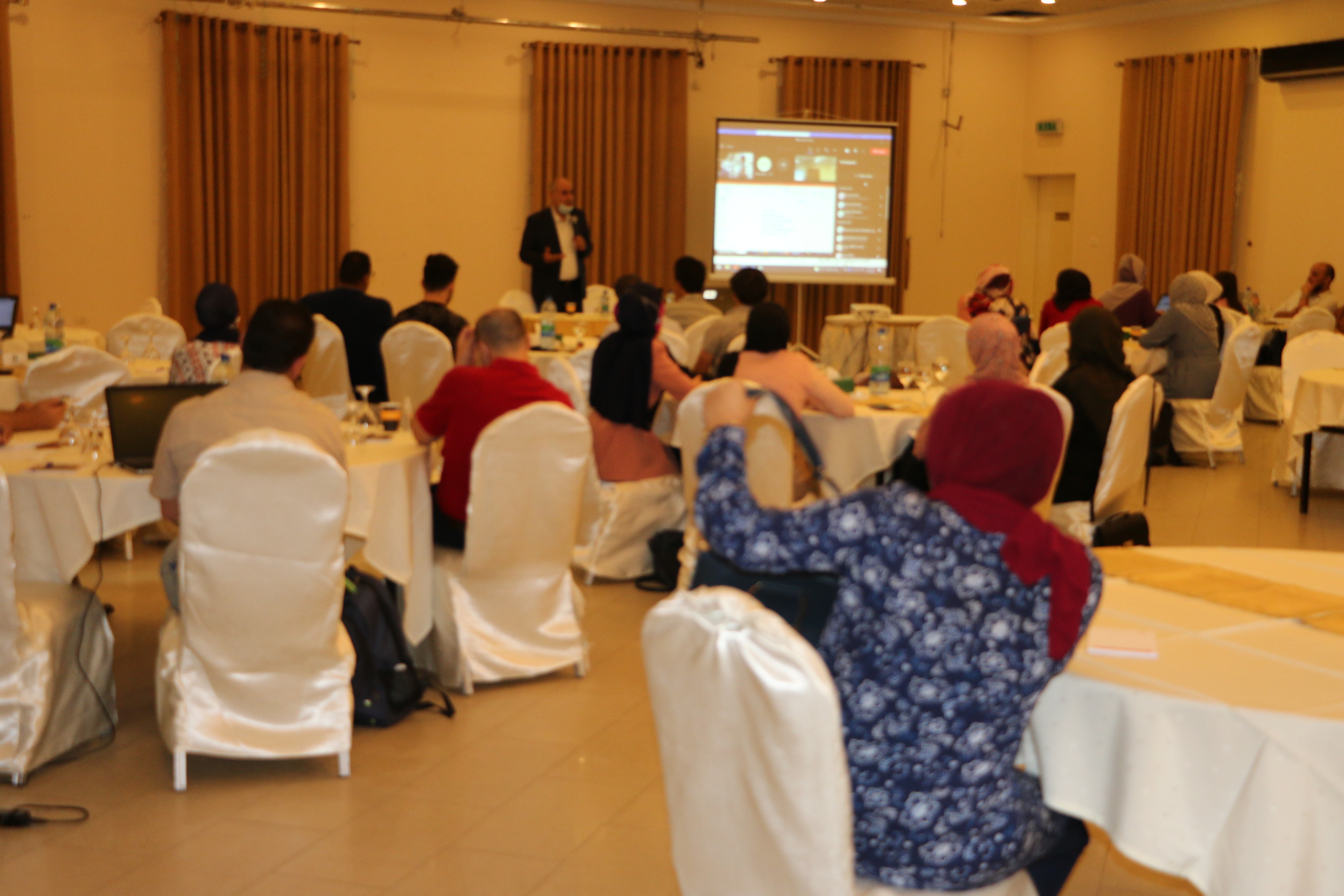PNGO held a specialized online workshop between Gaza Strip and the West Bank to stress the importance of the effective participation of civil society organizations in preparing humanitarian response plans and to help enhance their work by possessing the necessary information to bridge gaps and better serve the public.
The session that was hosted using Microsoft Teams also highlighted the existence of projects and other services in the most optimal way within the interests of the NGOs as a must. This situation applies to addressing the needs of marginalized groups and ensuring that these projects are presented in adhering to the principles of transparency and integrity in light of the difficult circumstances that the Palestinian people are going through, especially in the Gaza Strip.
The attendees highlighted the importance of building a real partnership with international institutions operating in the occupied Palestinian territory, by viewing the steps and mechanisms that must be available when submitting the project. The process starts with collecting preliminary information to submitting it and ensuring its approval by the supporting authorities.
In the same context, the participants were introduced to the procedures related to submitting projects clearly to guarantee maximum understanding, which in turn leads to an increase in the total number of projects.
The procedures mainly rely on following a template along with including all the right inputs according to the type of the project, the target parties, the type of services required, whether cash or in-kind, and the multi-needs projects.
Moreover, the participants from the NGOs were also introduced to the axes of basic information analysis, and taking into account the aspects that achieve the objectives of projects according to measurement tools that are included in clear indicators within the institutions' views for the coming year 2022.
On a similar note, the workshop placed emphasis on providing important elements related to the age group and gender of the beneficiaries, determining the type of assistance needed to confront the COVID pandemic and its impact on the volume and method of providing humanitarian aid worldwide.
In addition, implementing the action strategy was deemed important as well. One of its most important items is ensuring the availability of protection, finding the necessary aid mechanisms to reach those who deserve it, strengthening the poor groups through response programs and plans, and including the concept of protection from sexual abuse or exploitation within the ideas and proposals that must be developed when submitting projects.
During the workshop, examples were presented about the budget that should fit with the actual need of the project and to achieve its objectives after fulfilling the required standards.
The attendees were also informed about the tools to fill in the right information when submitting the project, and the items related to the partnership with the local community were highlighted according to measurement indicators. That includes steps related to submitting the complaint, following up within the institution, and obtaining feedback from the beneficiaries to ensure that no transgressions were committed. Cases of sexual harassment and assault, in other words.
Also, a professional evaluation is conducted according to clear tools to benefit from them in future projects and to meet the needs of the most affected groups of women, children or the elderly or persons with disabilities. This process ensures confidentiality and privacy of the complaint, taking the necessary measures to address its effects or to lead to more credibility.
One of the most important tools used for complaints is the e-mail or the complaints box within the institution. Complaints can be sent via the hotline or direct contact with the coordinator or institution, too. All of the mentioned means and more help to strengthening the relationship between the institution on the one hand and the public on the other hand.
Furthermore, the workshop addressed the mechanisms of work in times of crisis as well as the importance of raising awareness about this issue, monitoring and following up on complaints, and the existence of internal systems in institutions that are compatible with that. The workshop was keen to mention that these standards are included in work contracts and agreements and with suppliers clearly, which contributes to improving the quality of submitted projects and facilitates the approval process.
In another note, Amjad Al- Shawa, Palestinian Network of NGOs director (PNGO), stressed in this opening speech the role of Palestinian civil work in humanitarian and relief response plans and projects, and the importance of exerted efforts to expand the capabilities of institutions to address the repercussions of the humanitarian situation.
Finally, about 75 participants from different sectors and organizations attended the workshop in both the Strip and the West Bank, where they have participated effectively. Their comments and notes were recorded to use in future workshop to develop organizations capabilities and relationship with international institutions and better serve the public.

